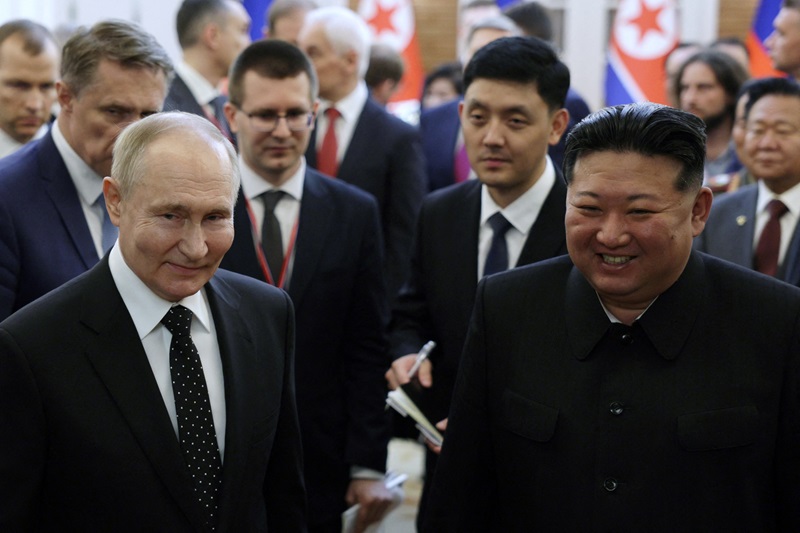A delegation led by Kim Kum-chol, president of Kim Il Sung Military University, departed from Pyongyang on Monday, according to North Korean media. Kim Il Sung Military University, named after North Korea’s late founder, serves as a key post-secondary institution for training Korean People’s Army officers. North Korean leader Kim Jong-un, the founder’s grandson, reportedly took courses there, including artillery studies, after his education in Switzerland.
Reports did not disclose the identity of delegation members other than Kim Kum-chol, the purpose of the visit, its destination, or duration.

Some analysts suggest the visit is a follow-up to the treaty.
The South Korean government has warned that “any cooperation aiding North Korea’s military enhancement, directly or indirectly, is a violation of United Nations Security Council resolutions and subject to international scrutiny and sanctions.”
South Korea plans to closely examine whether the visit by North Korean military education officials to Russia violates international sanctions, considering Kim Kum-chol’s relatively low ranking.
“The North Korean officials visiting Russia this time are not considered to be highly significant figures in the military,” an official from the Unification Ministry told reporters Tuesday under the condition of anonymity. “Simple personnel exchanges themselves are not prohibited by [UN Security Council sanctions resolutions on North Korea]. However, if visible military exchanges and cooperation follow this visit, it could be considered a violation of sanctions depending on the specifics.”
“Whether this is general military education or something else, we need to monitor the delegation’s activities closely,” a Foreign Ministry official echoed. “However, as we have repeatedly said, any military actions that can enhance North Korea’s military capabilities are violations of UN Security Council resolutions.”
BY SEO JI-EUN [seo.jieun1@joongang.co.kr]




